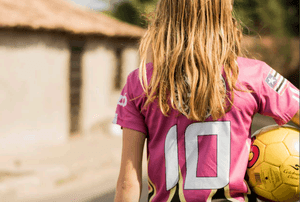Real Choices, Real Lives: Brazil, Dominican Republic, and El Salvador

This report, focusing on evidence from Brazil, Dominican Republic, and El Salvador, forms part of Plan International’s ongoing research, Real Choices, Real Lives – a qualitative, longitudinal study following the lives of girls living in nine countries* around the world from their birth (in 2006), until they turn 18 (in 2024).
Through annual data collection, Real Choices, Real Lives captures unique insights into what it means to grow up as a girl across different contexts, including how families and communities shape expectations of what girls can do, and be, right from the moment they are born.
In 2022, we prepared a series of regional reports drawing on data spanning the COVID-19 pandemic – specifically data captured in 2019/2020 and 2021. By 2021, a total of 118 girls – 32 from the Latin America and the Caribbean countries – were still participating in the study. The girls’ voices, along with those of their families, provide a powerful perspective on how the pandemic has impacted girls and their communities, with often differential impacts exacerbated by and exacerbating existing inequalities and gendered divisions.
Download the report
Regional Update – Latin America (English)
3.77 mb
Regional Update – Latin America (Spanish)
5.30 mb
In the Latin America and the Caribbean countries, the girls are aspirational and determined to succeed at school, with the majority still in full-time education.
However, there is a rising number of reported early pregnancies across communities as well as within the cohort (with two of the girls pregnant) – and despite many of the girls getting sex education lessons at school, information is often limited, and parents feel ill-equipped to manage conversations.
Reports of violence – including rape, muggings, and harassment – are widespread across the three countries, and girls are affected by fear and limited in where they go and what they wear. Girls feel held back from meaningfully participating in community life – with a sense that more facilities and training, as well as role modelling, would support their engagement.
The pandemic affected girls’ mental well-being – and there are reports across all the countries girls experiencing isolation and depression, alongside worrying about their education and the future. For gender equality to become a reality, families believe practical support and facilities are needed – including access to educational opportunities (training centres), and community facilities.
Despite the challenges, the girls are resilient and determined for the future to be different.
“I imagine it like this, me sitting like this in the chair, solving problems, doing my job – a psychologist solving people’s problems.”
Natalia, Brazil, 2021**
*The nine countries are: Benin, Brazil, Cambodia, Dominican Republic, El Salvador, the Philippines, Togo, Uganda, and Vietnam.
**Names used in the study are pseudonyms.


